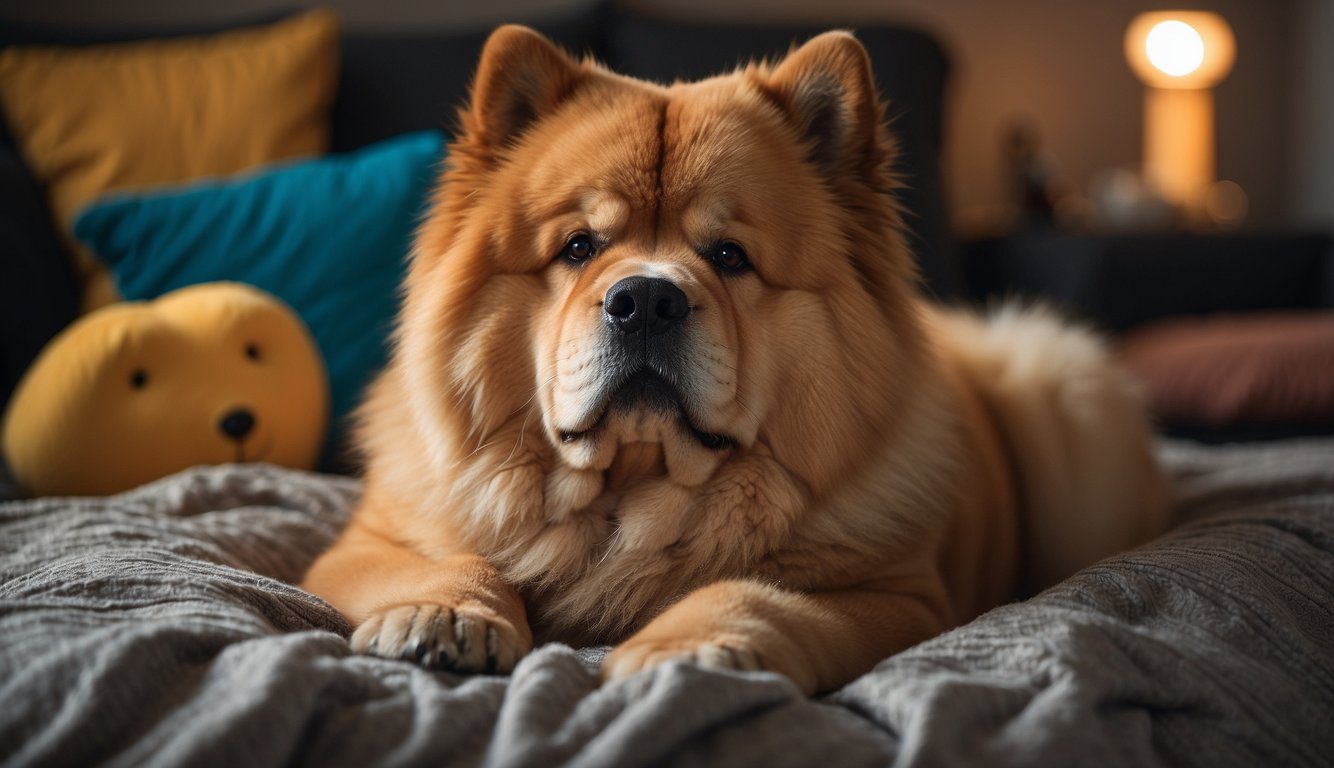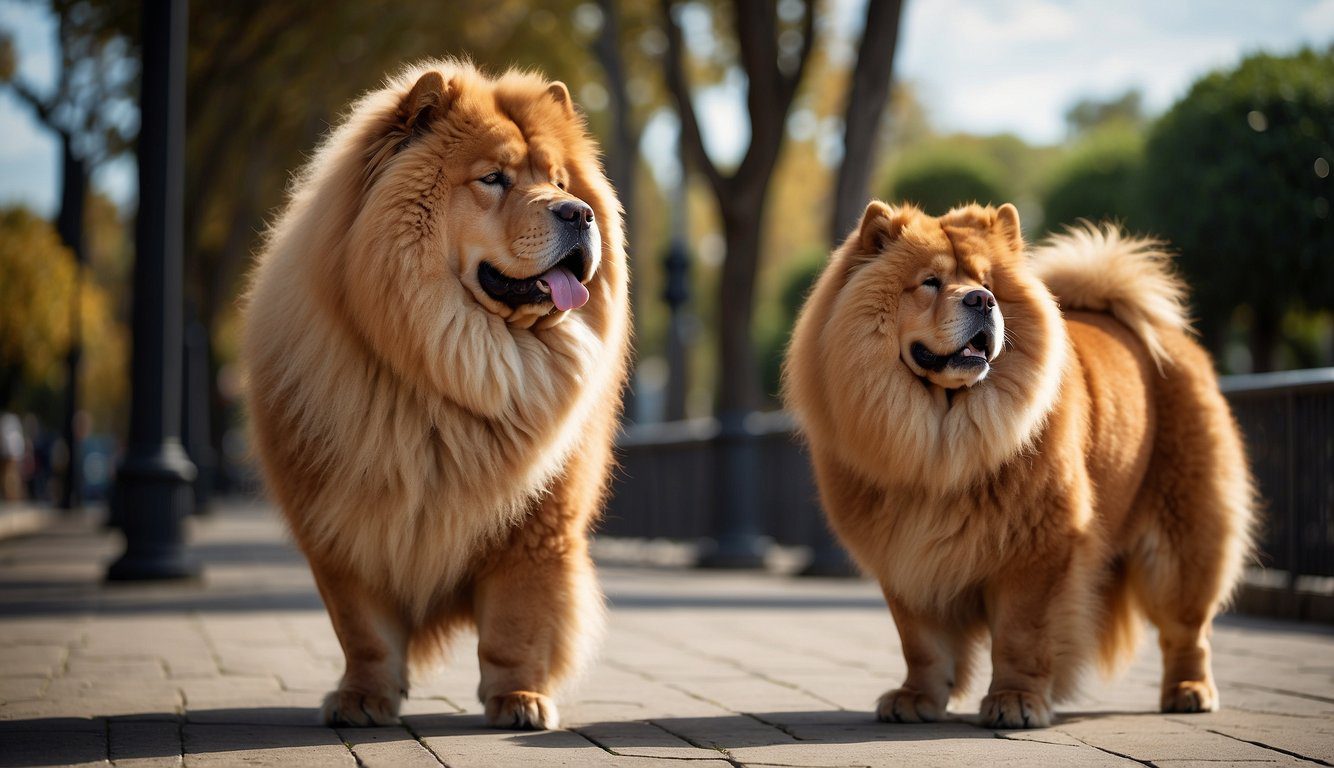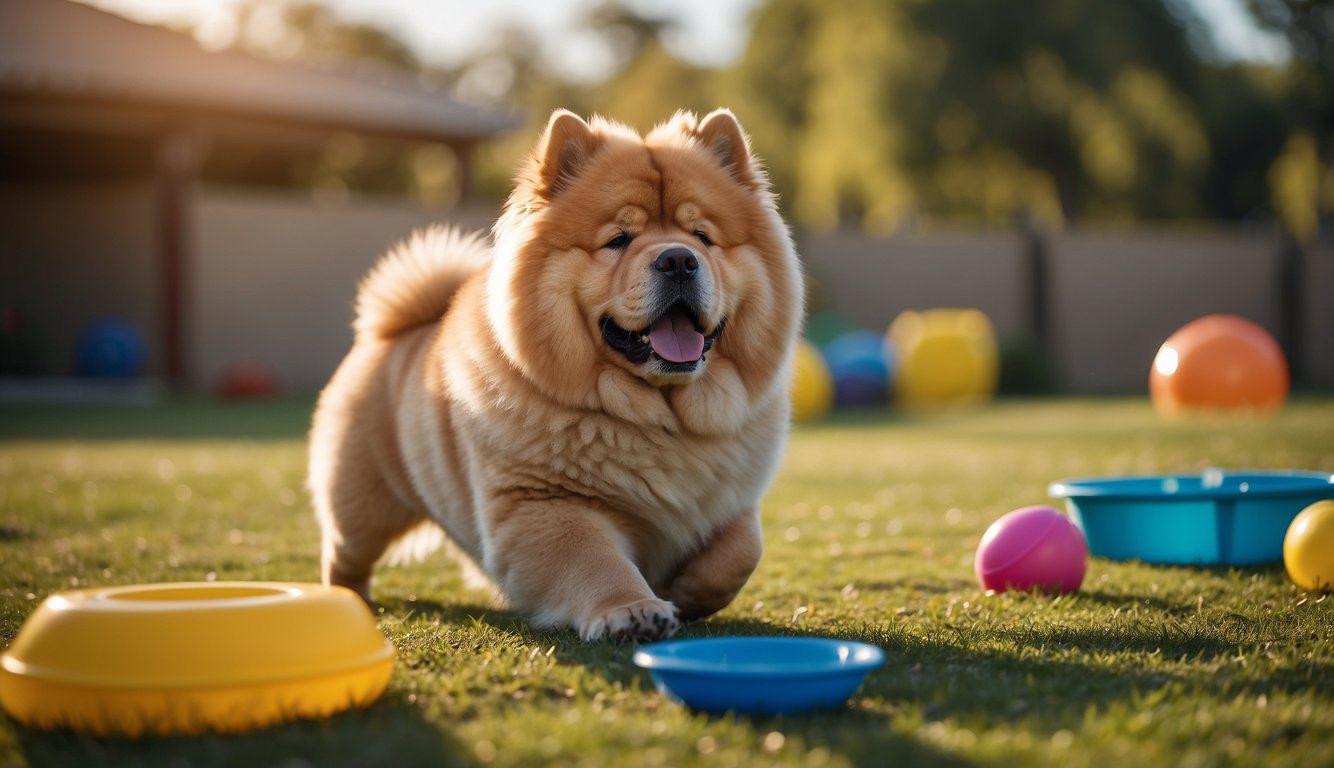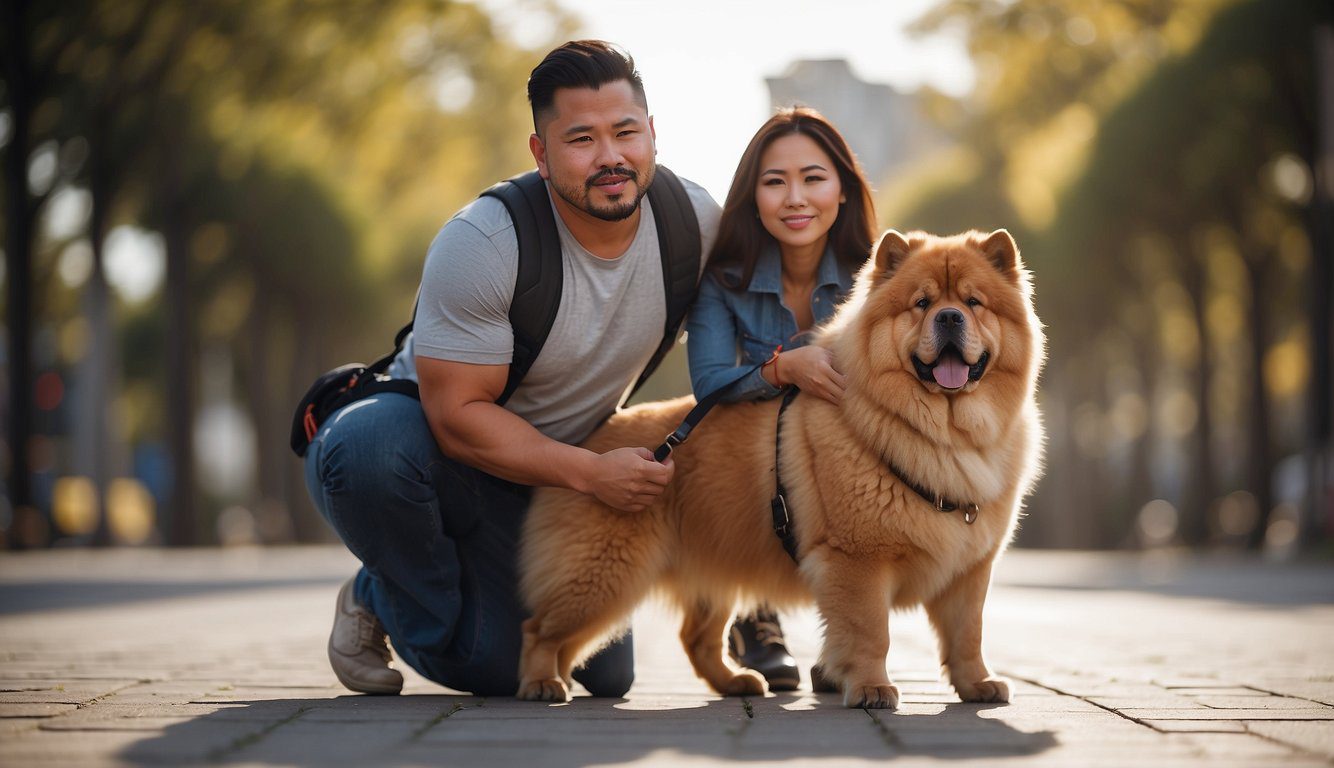What to Know
How Long Do Chow Chows Live?
Chow Chows have an average lifespan of 8 to 12 years. With proper care, diet, and exercise, they can live up to 15 years or more.

When I first got my Chow Chow, I was curious about how long they typically live. I made sure to give my dog regular check-ups and a balanced diet. This helped keep them healthy and active well into their senior years.
In this article, I’ll share insights on how you can enhance the quality of life and longevity of your Chow Chow. From understanding their health and care needs to making a lifelong commitment, you’ll find valuable tips and information.
Key Takeaways
- Chow Chows live an average of 8-12 years but can reach 15 years with good care.
- Proper diet, regular exercise, and routine veterinary visits are crucial.
- Understanding common health issues in Chow Chows helps in taking preventive measures.
Understanding the Chow Chow Breed

The Chow Chow is an ancient dog breed known for its distinctive lion-like appearance and dignified demeanor. Here’s a dive into their historical significance, unique characteristics, and charming personalities.
Historical Background
The Chow Chow has a rich history dating back thousands of years in China. Originally bred for hunting, herding, pulling, and guarding, these dogs were prized for their versatility and strength.
It’s fascinating how they’ve adapted from working dogs to beloved pets.
Historical records suggest that they were even companions to Chinese nobles and emperors. One intriguing aspect is their presence in Chinese art and pottery, reflecting their deep cultural roots.
The breed was introduced to the Western world in the late 19th century, and since then, it has gained a dedicated following.
Defining Characteristics
Chow Chows are easily recognizable by their thick double coat, sturdy build, and distinctive blue-black tongue. Their appearance is both regal and imposing, often described as lion-like.
The breed comes in various colors, including red, black, blue, cinnamon, and cream. Their small, deep-set eyes and a ruff of fur around the neck give them a unique look.
One important characteristic is their straight hind legs, which can make their gait seem somewhat stiff or stilted.
This breed is also known for its powerful jaw and scissor bite, traits that hint at its historical roles as a guard and hunting dog. Grooming a Chow Chow can be quite a task, as they shed year-round and require regular brushing to maintain their coat.
Personality Traits
When it comes to personality, Chow Chows are known for being loyal and reserved. They’re often described as having a cat-like demeanor—independent, yet affectionate with their families.
This breed is naturally protective, making them excellent watchdogs. However, their reserved nature means they can be aloof with strangers, necessitating early socialization.
I’ve had my Chow Chow for four years, and I can tell you, their loyalty is unmatched. They might not be overly enthusiastic, but their quiet companionship is incredibly endearing.
Chows are also known for being quite stubborn, which can make training a challenge. Consistent, patient training is key to managing this independent streak.
Health and Care for a Chow Chow’s Life

Taking care of a Chow Chow involves understanding their specific needs and giving them proper care. This includes a balanced diet, regular exercise, managing common health conditions, and ensuring routine veterinary checkups.
Dietary Requirements
Chow Chows need a balanced diet to stay healthy. I feed my Chow a mix of high-quality dry kibble and wet food to provide the needed nutrients. Protein is crucial in their diet, so look for dog food where meat is the first ingredient.
Avoid foods high in fillers like corn or soy. I also measure their portions to prevent overfeeding and obesity. Treats are okay, but I keep them under control to avoid weight issues. Fresh water is always available too.
Exercise and Activity Levels
My Chow loves his daily walks. Chow Chows need about 30-60 minutes of exercise each day. This helps maintain their weight and keep them active.
We usually go for a walk in the morning and evening since they can overheat in the midday sun due to their thick fur.
Besides walking, playtime with toys is a great way to keep them engaged. Activities like fetch and puzzle toys help stimulate their minds.
A fenced yard allows for safe outdoor play, but always supervise them as Chows can be independent and curious.
Common Health Conditions
Chow Chows are prone to several health conditions. Hip and elbow dysplasia are common genetic issues that affect their joints.
My Chow had to have surgery for hip dysplasia, so it’s important to buy from reputable breeders who screen for these conditions.
Skin problems, including allergies and infections, are another concern. Regular grooming and skin checks help catch issues early.
Obesity can exacerbate joint problems, so keeping your Chow at a healthy weight is crucial. Regular vet visits help catch any health issues early.
Enhancing Your Chow Chow’s Life Expectancy

Caring for a Chow Chow involves a mix of healthy lifestyle choices, regular training, socialization, and keen attention to their mental and physical well-being. These steps ensure your furry friend enjoys a long, happy life.
Training and Socialization
Training and socialization are key to a Chow Chow’s well-being. Early training helps them understand basic commands and behavior.
Taking them to puppy classes can help. I found that short, daily sessions worked wonders for my Chow.
Socializing your dog prevents aggression and fear. Introduce them to different people, places, and pets. I took mine to dog parks and invited friends over. They soon became well-adjusted and happier.
Consistent reinforcement through treats and praise helps. A well-trained and socialized Chow is less stressed, leading to a longer life.
Mental Health and Well-being
Mental stimulation is just as important as physical health. Puzzles and interactive toys keep their mind sharp. I often hide treats around the house for a fun game of hide-and-seek.
Stress can reduce life expectancy, so providing a calm environment is crucial. My Chow loves a quiet corner with their favorite blanket. Regular grooming sessions also reduce stress and strengthen our bond.
Remember, a happy Chow Chow is less likely to develop negative behaviors or mental health problems.
Preventing Common Health Issues
Chow Chows are prone to certain health issues like hip dysplasia and skin infections. Regular vet check-ups are essential. My vet recommended glucosamine and chondroitin for joint health.
Maintaining a healthy weight through a balanced diet and regular exercise prevents obesity. Obesity can lead to other health issues. Daily walks and playtime in the yard keep my Chow fit.
Early detection of health problems is crucial. I always watch for signs of pain or discomfort and consult my vet immediately. Addressing issues promptly improves their quality of life and extends their lifespan.
Making the Commitment to a Chow Chow

Taking in a Chow Chow is a big decision that requires careful planning. It involves understanding the time, effort, and resources needed, finding the right dog, and considering long-term responsibilities.
Understanding the Commitment
Owning a Chow Chow means you’re ready to give your time and attention. These dogs need proper care such as regular exercise, grooming, and veterinary check-ups. I learned early that Chow Chows aren’t low-maintenance.
They have thick coats prone to shedding, which means grooming is a must. Plus, they’re prone to health issues like hypothyroidism and hip dysplasia. Routine vet visits help catch problems early.
Thinking of where to buy or adopt a Chow Chow is crucial. Avoid puppy mills and go for reputable breeders or adoption centers.
Healthy pups come from breeders who care about good genetics and health, reducing the risk of future health problems.
Finding the Right Chow Chow
When I decided to get my first Chow Chow, I researched a lot about where to find a healthy puppy. You must choose between buying from a breeder or adopting.
Reputable breeders ensure their dogs are well-treated and healthy. They often provide health clearances for the parent dogs, which can give you insights into potential genetic issues.
Adopting from a shelter is a wonderful option, giving a dog a second chance. Many older dogs in shelters need loving homes.
Whichever route you choose, make sure to avoid puppy mills by recognizing red flags like overcrowded facilities and lack of medical care.
Long-Term Considerations
A Chow Chow’s lifespan ranges from 8 to 14 years. This means long-term planning for their care is essential.
I make sure my Chow Chow gets a balanced diet, regular exercise, and routine veterinary care. Flea and tick prevention, as well as spaying/neutering, are part of the healthcare regimen.
Daily activities also play a big role. These dogs enjoy moderate exercise, so walks and playtime are necessary to keep them fit and happy.
Their thick coats need frequent brushing to manage shedding. It’s also important to be prepared for healthcare costs, especially if issues like hip dysplasia arise.
By planning for these aspects, you ensure that your Chow Chow lives a healthy and happy life.
Ready to commit a Chow Chow? It’s a rewarding journey filled with love and companionship!
FAQs

Chow Chows often have specific lifespans and health concerns that potential owners should be aware of. Here are some key questions about their longevity and health.
What is the typical lifespan of a female Chow Chow?
Female Chow Chows usually live between 8 to 12 years. Some can live up to 15 years with proper care.
Factors like diet, genetics, and routine veterinary visits play a significant role in their lifespan. Proper exercise and mental stimulation are crucial too.
At what age is a Chow Chow considered senior or geriatric?
Chow Chows are considered senior dogs when they reach around 7 to 8 years old. At this age, their activity levels may decrease, and they might start experiencing health issues.
Regular check-ups and appropriate adjustments in their care routine can help maintain their well-being.
What are common health concerns that may affect the longevity of Chow Chows?
Chow Chows are prone to several health issues, including hip dysplasia, entropion (eye condition), and hypothyroidism. Skin problems and allergies are also common.
Early detection and treatment of these conditions can significantly impact their quality of life and longevity.
How does the longevity of Chow Chows compare to other similar dog breeds?
Compared to other similar breeds, Chow Chows have a relatively moderate lifespan. For example, Golden Retrievers often live around 10-12 years, while German Shepherds have a lifespan of about 9-13 years.
Smaller dogs, like Chihuahuas, can live much longer, sometimes up to 20 years.
Can you tell me the age of the oldest Chow Chow on record?
The oldest Chow Chow on record lived to be 15 years old. Many other Chow Chows live well into their teens, provided they receive the proper care and attention.
What are the best practices for ensuring a Chow Chow lives a long and healthy life?
To ensure a long and healthy life for your Chow Chow, provide a balanced diet rich in nutrients.
Regular exercise is essential to maintain a healthy weight.
Routine vet check-ups help catch health issues early.
Grooming is vital to prevent skin problems.
Love and attention are just as important to keep them happy and stress-free.

